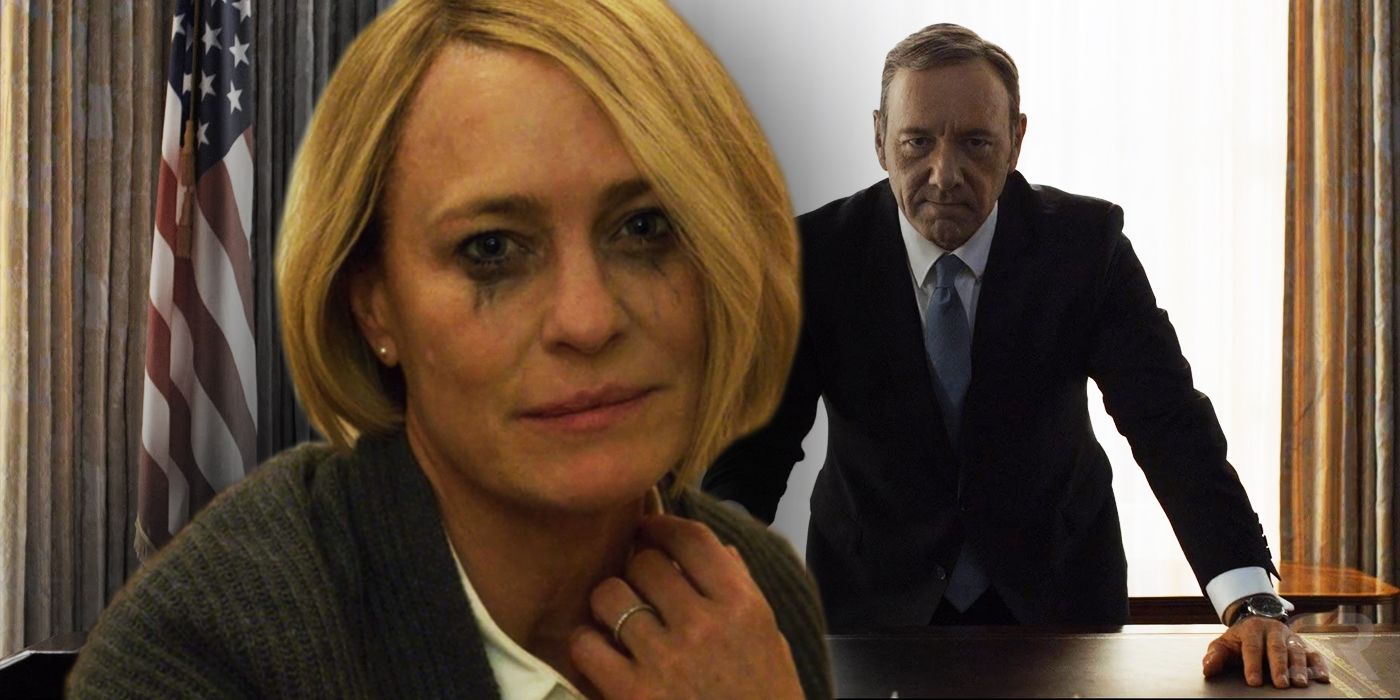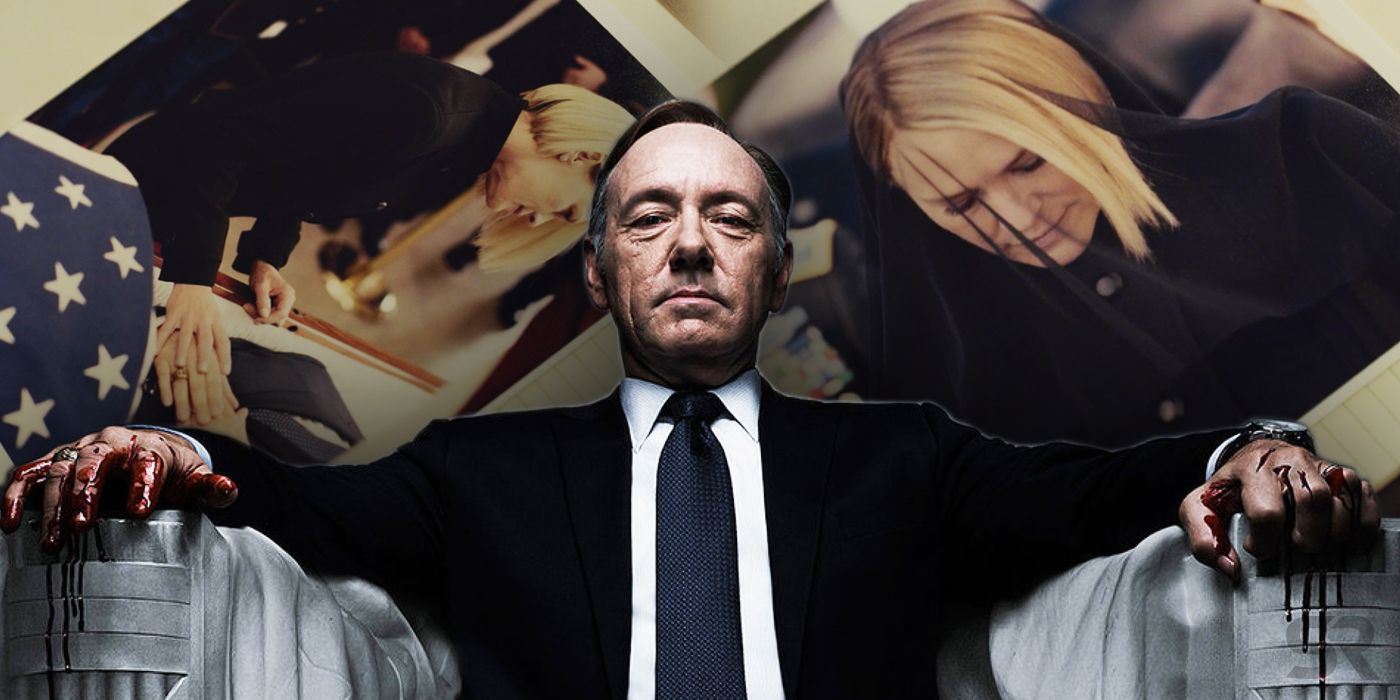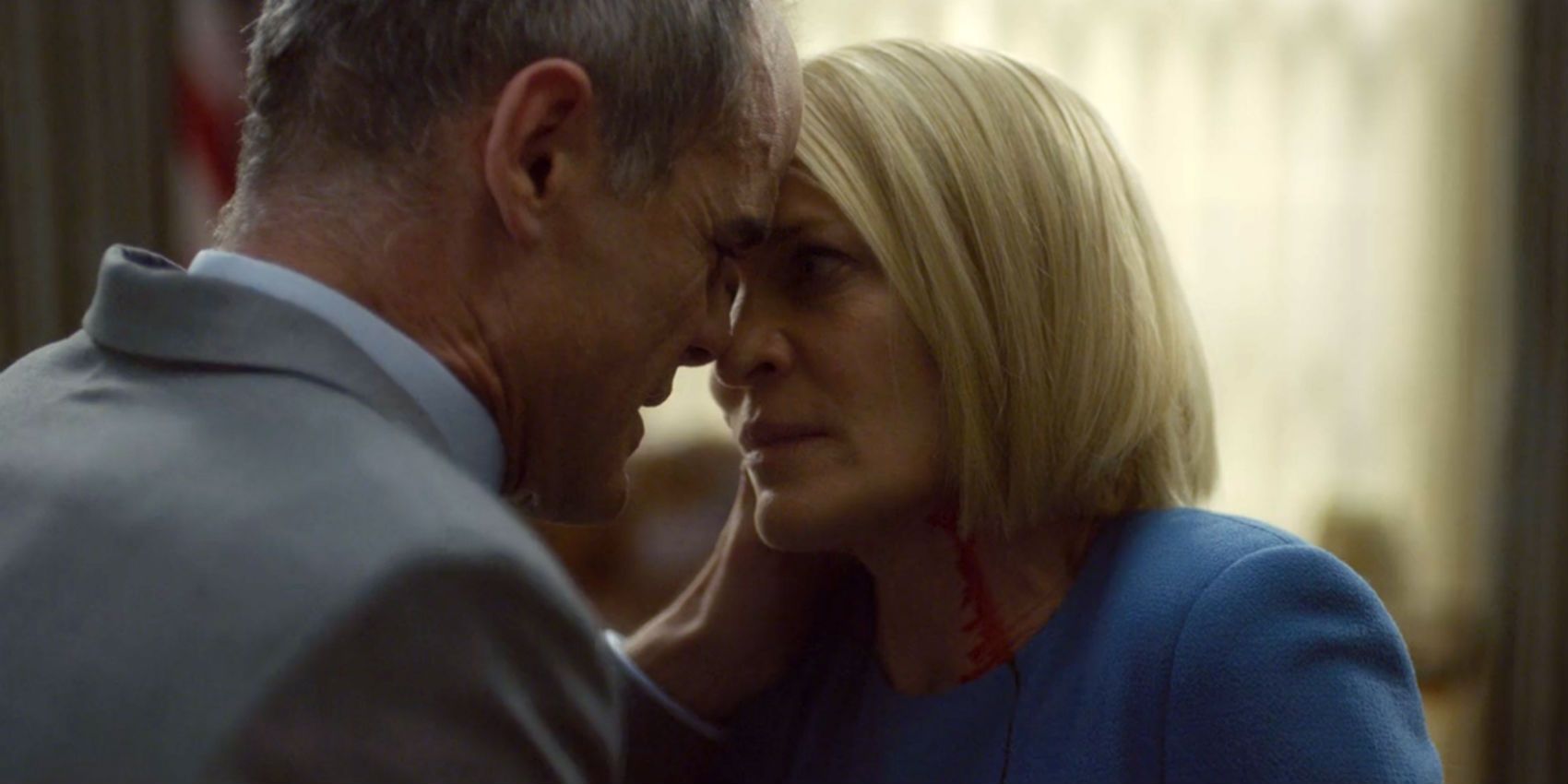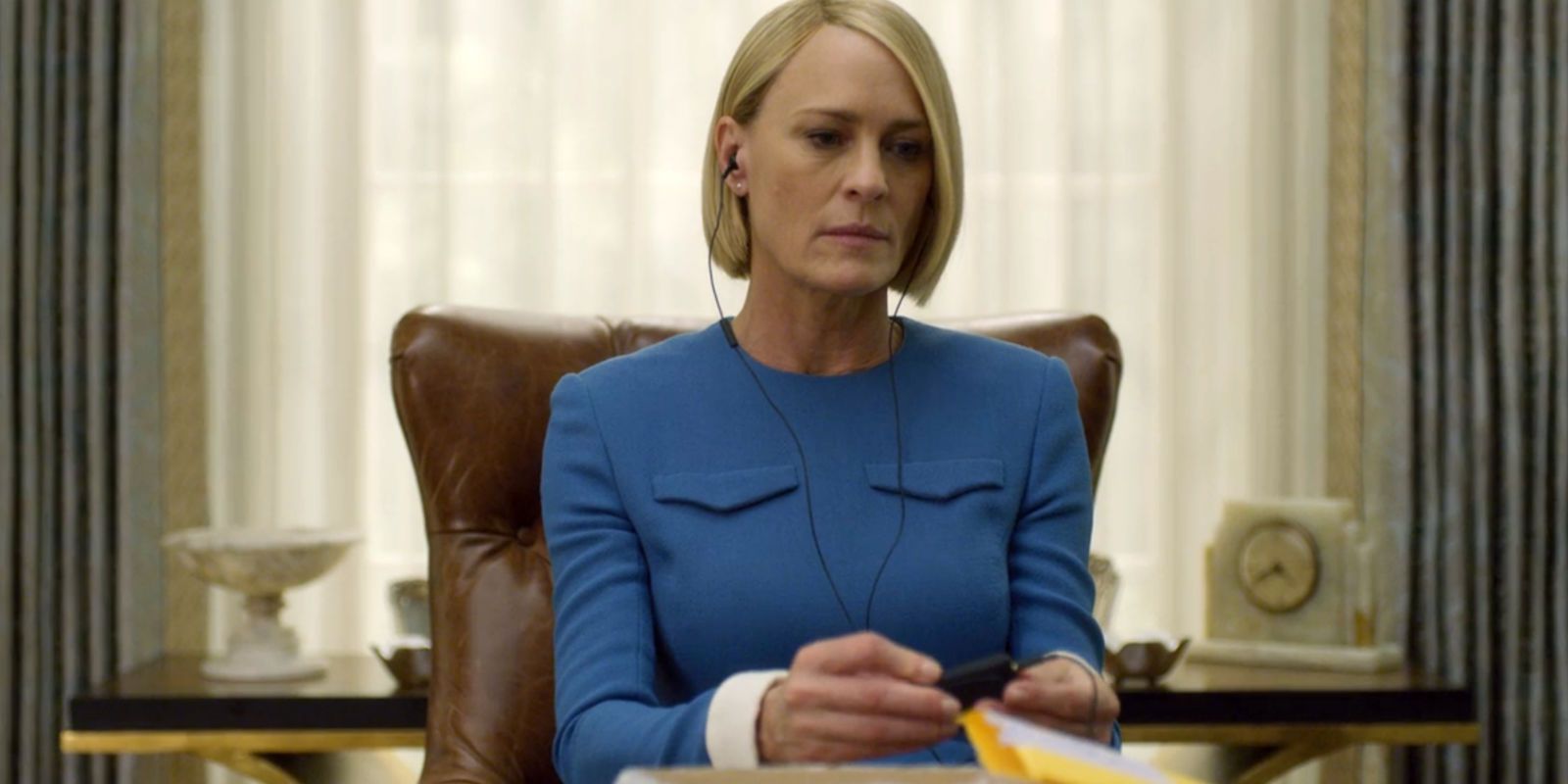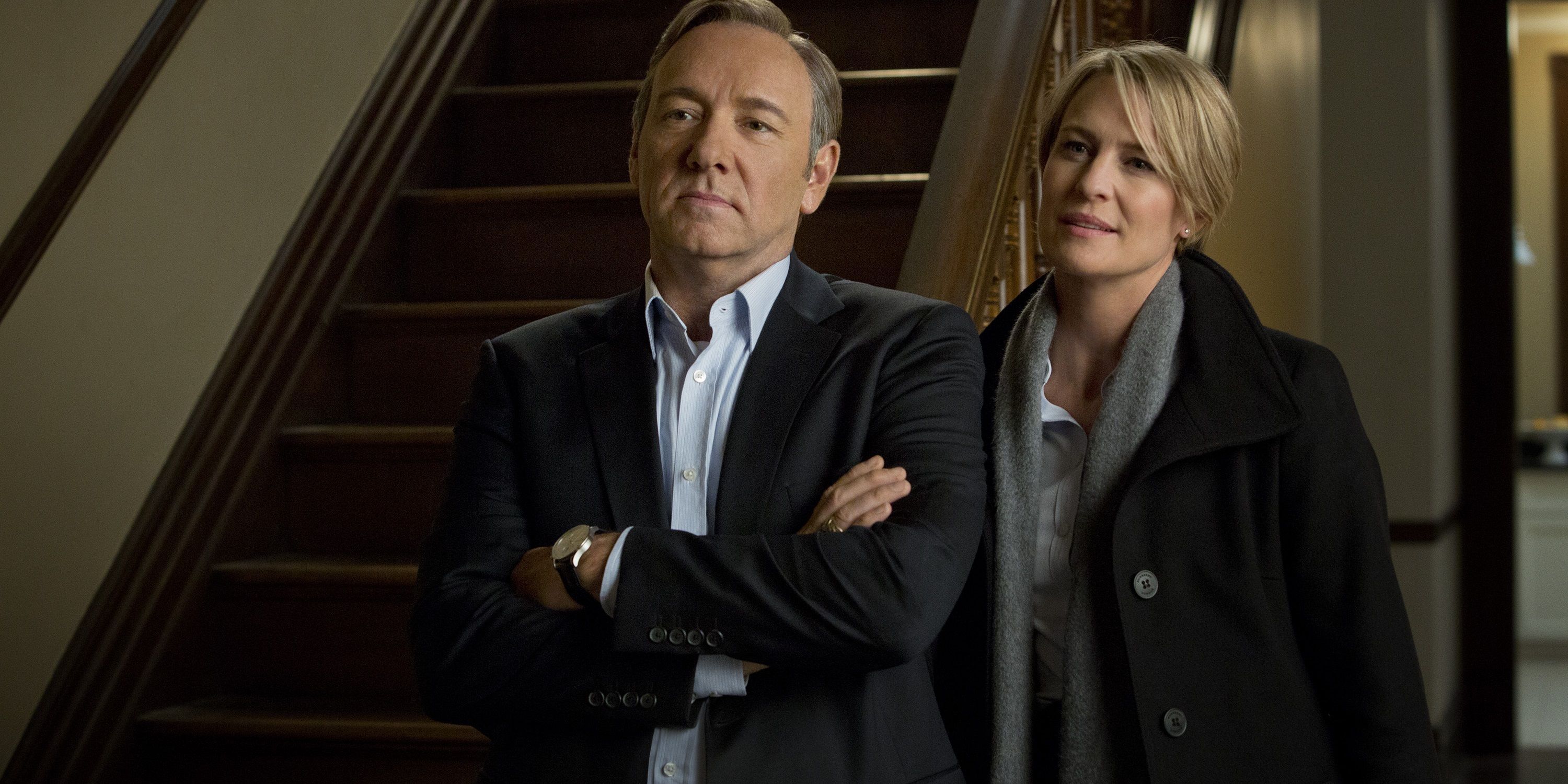WARNING: Spoilers for House of Cards season 6.
House of Cards' ending was better without using Frank Underwood. The final season of Netflix's political drama was rather different to originally planned: after multiple accusations against star Kevin Spacey for sexual assault, the lead actor was fired and season 6 entirely rewritten to focus singularly on Robin Wright's Claire Underwood.
To do this, House of Cards season 6 opens in the aftermath Frank Underwood's mysterious death. The final season then focuses on Claire battling off attacks from all sides while attempting to figure out how her husband died, convinced it was a murder. In the very final scene, the truth comes out: it was Doug Stamper, Frank's loyal assistant, who poisoned the former President as his moves against his wife began to threaten his legacy.
Related: How Kevin Spacey's Firing Changed House of Cards' Final Season
It's a shocking twist that leaves House of Cards ending on a rather open-ended note. But while it's immediately obvious that the final season's structure was changed substantially to work around the lack of Spacey, it may have actually led to a greater story.
- This Page: How Killing Frank Early Improved House of Cards
- Page 2: How The Season 6 Rewrites Helped House of Cards' Ending
House of Cards Wouldn't Have Killed Frank Underwood Without Spacey's Firing
While it was Kevin Spacey's firing from House of Cards that led to Frank Underwood already in the ground at the start of season 6, that's not to say he'd have lived to the end otherwise; it's widely accepted that the show would have always ended focusing on his death.
That's how the original BBC TV series on which House of Cards is based ended; Frank Urquhart is shot by his bodyguard under the orders of his wife in a bid to hide his true nature. While the crimes of Urquhart don't go as spiraling at Underwood, their stories - especially in the early seasons - bear a lot of similarities, and it was a sure-fire bet they'd meet a similar fate. This is assumed to be why, in House of Cards season 4, Frank suffers a near-fatal assassination attempt: it left him with a faulty liver, an easy-to-manipulate plot device that could kill him off at any time (indeed, it was overdosing on his medication that finally felled Frank).
The big assumed difference is that, in the pre-Spacey firing version of House of Cards season 6, Frank would have probably died at the end of the show. All indicators were that Spacey was a main character in the final season through to the end, and while House of Cards has killed of key players suddenly before, Frank Underwood is a bigger and more essential player than even Zoe Barnes. So, as much as his death is essential to the story, as is it being motivated to save Frank from himself, it would come at the other side of the sixth season as released - and that's very important.
Related: House of Cards Season 6's Ending Explained
House of Cards Season 6 Is All About Legacy - And Wouldn't Have Been With Frank
House of Cards season 6 takes on a lot, exploring the balance in the President's office between the good of the country, global power ranking and the rot of corporate America. But, above all, what the final season is about is legacy.
Claire is fighting the inevitable backlash of being the first female President, but also the threat the despicable acts of her husband (and herself) coming to light pose. Doug is driven almost entirely by his desire to protect Frank's memory, manipulating both sides and even giving up his own dark secrets in the hope it will keep the Underwood dynasty alive. And even industrialist family the Shepherds, new characters played by Greg Kinnear and Diane Lane) brought in to replace Frank as antagonists, are constantly wracked by generational handoff: Bill is dying and struggling to accept his non-biological nephew as a potential successor. Each of these threads intertwines over the season, providing a thoughtful conclusion to the show's questions of accountability.
What's so striking, though, is that all of these exist exactly because Frank is dead. Were Spacey still in the show, the Shepherds wouldn't exist and Claire's focus would be much more on rallying against her scheming husband. While there would still be a discussion of legacy in Frank's eventual death - especially if it was always going to be Doug who pulls the metaphorical trigger - it would be a less prominent factor by the nature of having the husband-wife conflict so forward.
Page 2 of 2: How The Season 6 Rewrites Helped House of Cards' Ending
House of Cards Finally Delivers A Short Netflix Season
House of Cards season 6 differs from the previous years in more ways than just its leading cast member. The run is just eight episodes long, a full five lower than the others. This is, quite clearly, a result of having to rewrite the majority of the story on a tight deadline, with a smaller episode count making the entire catastrophe of Spacey's firing easier to handle.
Related: House of Cards Season 6: New Cast & Character Recap Guide
Surprisingly, the result is one of the best-paced Netflix Original series yet. Instead of slowing down at the two-third point like many Marvel shows or feeling like it's heading for an ending before having a whole three-hour continuation like House of Cards season 4, this final season moves at a pace which is organically and constantly engaging. Some aspects, such as Bill Shepherd's deteriorating health, could have been given a little more breathing room, and it does make some plot wrap-up (like Claire having Tom Hammerschmidt, Jane Davis and Cathy Durrant all killed just as she forces Mark Usher out of the vice presidency), but it's refreshing all the same considering the bloat felt in recent years of the streaming show.
This is a great example of how creative restrictions can lead to better stories. The House of Cards writers knew what they wanted to achieve and explore in the final season, but had to come up with the plot in a tight spot, and in doing so ditched several unwritten rules - such as Netflix's algorithm-pleasing length - that could have otherwise held them back. And, really, it's that general vision holding true that makes the ending work.
House of Cards Didn't Need Frank To Complete Its Story
Everything we've discussed so far is about how House of Cards season 6 is unilaterally better for the early demise of Frank Underwood, but within that there's one key detail that bears repeating: it was still mostly on plan.
Related: House of Cards: Who Is The Father of Claire's Baby?
One of the most overt (and unwitting) references to the production adjustment is the repeated explanation for why Bill Shepherd's Washington D.C. apartment is the same one Frank Underwood lived in before his death. Behind-the-scenes, the reasoning is obviously that the set was built and needed to be incorporated in some way. But from a story standpoint, it highlights the economy of the rewrite. House of Cards' season 5's ending set Frank Underwood up as the prime enemy to Claire, using relationships with the corporate sector to destabilize her Presidency once it became she wouldn't pardon him for his past crimes. That's pretty much Bill and Anette's role in the released season - they just adjusted the actors.
Extrapolating, much of what House of Cards season 6 takes on seems to be in the spirit of not just the original plan, but the full scope of the entire series. It strives to resolve the key plot threads with such intensity it almost jumps from political thriller into soap opera, but that does highlight the desire to provide full resolution. That it does all that while allowing a full meditation on what Frank Underwood's death means and how it, ultimately, won't change America, is a bonus that we wouldn't have got otherwise.
-
The entire Kevin Spacey story is a sorry one, with a dangerous predator getting away with his misdeeds for too long. Fortunately, Netflix dealt with it in the best way possible, and enabled the showrunners in such a way that House of Cards was able to end in a better state than anybody expected.

